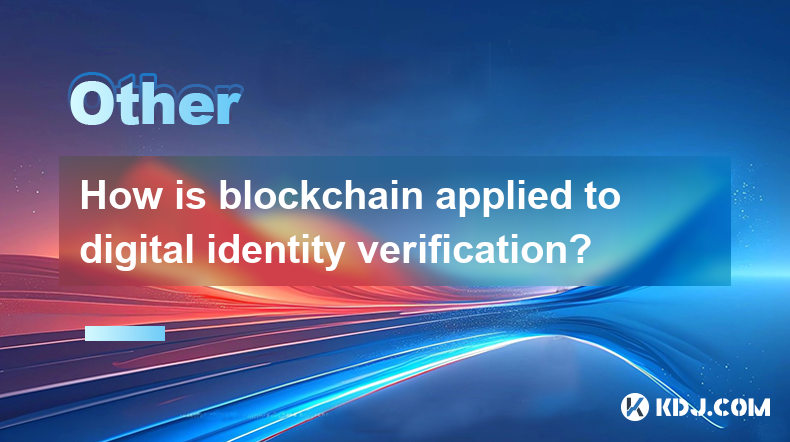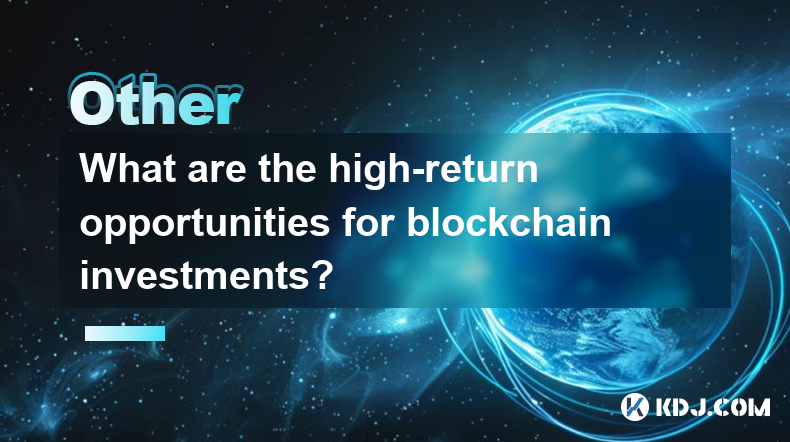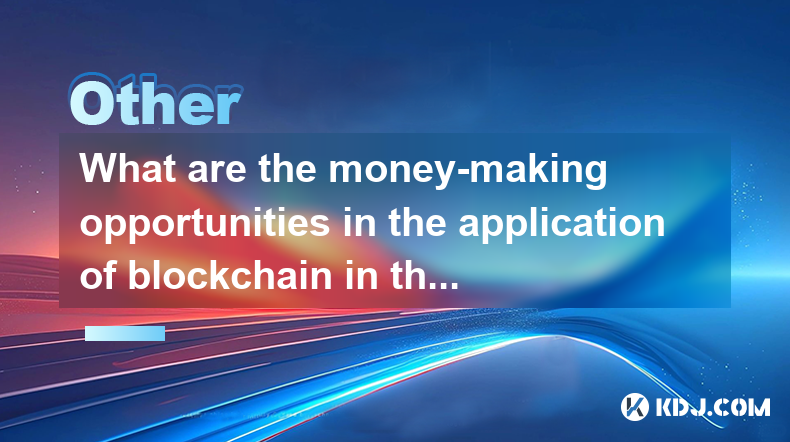-
 Bitcoin
Bitcoin $83,418.1551
-0.31% -
 Ethereum
Ethereum $1,808.8979
-0.41% -
 Tether USDt
Tether USDt $0.9999
0.02% -
 XRP
XRP $2.1463
1.00% -
 BNB
BNB $593.3907
-0.49% -
 Solana
Solana $120.0979
-1.63% -
 USDC
USDC $1.0001
0.00% -
 Dogecoin
Dogecoin $0.1689
-0.83% -
 Cardano
Cardano $0.6536
-1.17% -
 TRON
TRON $0.2370
-0.75% -
 Chainlink
Chainlink $12.8454
-0.75% -
 UNUS SED LEO
UNUS SED LEO $9.1245
-0.51% -
 Toncoin
Toncoin $3.2503
-4.22% -
 Stellar
Stellar $0.2527
-2.58% -
 Avalanche
Avalanche $17.8357
-1.69% -
 Shiba Inu
Shiba Inu $0.0...01231
-0.09% -
 Sui
Sui $2.2068
-1.49% -
 Hedera
Hedera $0.1623
-0.93% -
 Litecoin
Litecoin $82.5360
-2.34% -
 Polkadot
Polkadot $3.9567
-1.88% -
 Bitcoin Cash
Bitcoin Cash $306.9330
1.70% -
 MANTRA
MANTRA $6.2879
0.30% -
 Dai
Dai $1.0001
0.01% -
 Bitget Token
Bitget Token $4.4588
-1.48% -
 Ethena USDe
Ethena USDe $0.9992
0.01% -
 Pi
Pi $0.6376
24.33% -
 Hyperliquid
Hyperliquid $11.9460
0.08% -
 Monero
Monero $213.4997
-0.58% -
 Uniswap
Uniswap $5.8533
-0.79% -
 OKB
OKB $52.7441
6.99%
How is blockchain applied to digital identity verification?
Blockchain's decentralized, immutable ledger enhances digital identity security by distributing and protecting sensitive data, empowering self-sovereign identity models while facing interoperability and regulatory hurdles.
Mar 18, 2025 at 06:00 am

Key Points:
- Blockchain's decentralized and immutable nature offers enhanced security and trust for digital identity verification.
- Several blockchain-based solutions utilize cryptographic techniques and distributed ledgers to manage and verify identities.
- Self-sovereign identity (SSI) models empower individuals with greater control over their data.
- Interoperability between different blockchain-based identity systems remains a challenge.
- Regulatory compliance and data privacy concerns need careful consideration.
How is Blockchain Applied to Digital Identity Verification?
Blockchain technology, with its inherent security and transparency, presents a compelling alternative to traditional centralized identity verification systems. The decentralized nature of blockchain eliminates single points of failure and reduces the risk of data breaches. This is crucial in digital identity management, where sensitive personal information is at stake. Instead of relying on a single authority, identity information is distributed across a network of nodes, making it significantly more resilient.
The immutable nature of blockchain is another key advantage. Once a piece of identity information is recorded on the blockchain, it cannot be altered or deleted without detection. This ensures the integrity and authenticity of the data, a crucial aspect for trust in digital identities. This immutability enhances the reliability of the verification process, reducing the chances of fraud or identity theft.
Several approaches leverage blockchain for digital identity verification. One common method involves using cryptographic techniques to create unique digital identities linked to individuals' real-world identities. These identities, often represented as digital credentials, can be verified on the blockchain without revealing sensitive personal details. This approach maintains privacy while ensuring authenticity.
Self-Sovereign Identity (SSI) is a prominent model that places individuals in control of their digital identities. SSI systems allow individuals to manage and share their identity data selectively, granting access only to those they trust. This approach aligns with the growing emphasis on data privacy and user control over personal information. The blockchain acts as a secure and transparent platform for managing and sharing these credentials.
Implementing SSI often involves creating verifiable credentials, which are digitally signed assertions about an individual's attributes. These credentials can be stored in digital wallets and presented to verifiers as needed, offering a more streamlined and user-friendly verification process. The blockchain serves as a trusted registry for these credentials, enabling verification without relying on centralized authorities.
However, challenges remain in the widespread adoption of blockchain-based identity systems. One significant hurdle is interoperability. Different blockchain platforms and identity systems may not be compatible, hindering seamless data exchange and verification. Standards and protocols are crucial to address this interoperability challenge and facilitate wider adoption.
Another consideration is scalability. Processing a large number of identity verification requests on a blockchain can be computationally intensive and expensive. Solutions to improve scalability and efficiency are needed to make blockchain-based identity systems viable for large-scale deployments.
Data privacy is another important aspect. While blockchain enhances security, careful consideration must be given to how personal information is handled and protected. Implementing appropriate privacy-preserving techniques and complying with relevant data protection regulations are crucial for ensuring ethical and responsible use of blockchain in digital identity.
The legal and regulatory landscape surrounding blockchain-based identity systems is still evolving. Compliance with existing laws and regulations is essential, and clear legal frameworks are needed to support the development and adoption of these technologies. This requires collaboration between technology developers, regulators, and policymakers.
Furthermore, the integration of blockchain technology with existing identity infrastructure can be complex. Connecting blockchain-based identity systems to traditional systems and processes requires careful planning and execution. This integration is critical to ensure smooth transition and widespread adoption. The process requires careful consideration of legacy systems and their compatibility with blockchain technology.
The user experience is also a factor. Blockchain-based identity systems must be intuitive and user-friendly to encourage adoption. Complex technical processes can hinder user engagement, and a simplified user interface is crucial for successful implementation. Usability testing and feedback are vital in designing user-friendly systems.
Common Questions and Answers:
Q: What are the security benefits of using blockchain for digital identity verification?
A: Blockchain's decentralized and immutable nature significantly enhances security. Data isn't stored in a single location, making it resistant to breaches. The immutability prevents tampering with identity records. Cryptographic techniques further strengthen security.
Q: How does self-sovereign identity (SSI) work with blockchain?
A: SSI empowers individuals to control their identity data. Blockchain provides a secure and transparent platform for storing and managing verifiable credentials, allowing users to selectively share their information.
Q: What are the challenges in implementing blockchain-based identity systems?
A: Interoperability between different systems, scalability issues, data privacy concerns, regulatory compliance, and user experience are key challenges. Addressing these issues is crucial for widespread adoption.
Q: What are the privacy implications of using blockchain for digital identity?
A: While blockchain enhances security, careful design is needed to protect privacy. Techniques like zero-knowledge proofs can help to verify identity without revealing sensitive data. Compliance with data protection regulations is also essential.
Q: How does blockchain compare to traditional identity verification methods?
A: Blockchain offers enhanced security, transparency, and user control compared to centralized systems. However, traditional systems might offer greater immediate scalability and established regulatory frameworks. The best approach depends on the specific needs and context.
Disclaimer:info@kdj.com
The information provided is not trading advice. kdj.com does not assume any responsibility for any investments made based on the information provided in this article. Cryptocurrencies are highly volatile and it is highly recommended that you invest with caution after thorough research!
If you believe that the content used on this website infringes your copyright, please contact us immediately (info@kdj.com) and we will delete it promptly.
- Is Ethereum (ETH) Dead as an Investment?
- 2025-04-06 08:40:12
- Bitunix exchange launches the Ultra version of K-line (candlesticks) on its mobile app integrated with TradingView
- 2025-04-06 08:40:12
- As XRP Has Become the Focus of the Market Due to Ripple's Legal Victory and ETF Expectations
- 2025-04-06 08:35:12
- Trump-Themed Coins Dominate the List of Top-Performing Cryptos Today
- 2025-04-06 08:35:12
- Meme Coins Could Be Solana (SOL)'s Secret Weapon to $1,000
- 2025-04-06 08:30:12
- Did BlackRock's CEO Just Describe XRP Without Saying Its Name? Plus, One Ripple Alternative You Haven't Heard Of
- 2025-04-06 08:30:12
Related knowledge

Is the ranking of Chinese blockchain apps real and reliable?
Apr 04,2025 at 09:01pm
The ranking of Chinese blockchain apps has become a topic of interest for many in the cryptocurrency community, as it provides insights into the popularity and adoption of blockchain technology within China. However, the reliability and authenticity of these rankings are often questioned. This article aims to delve into the factors that influence these ...

What are the future development trends of blockchain game development?
Apr 03,2025 at 05:00am
Blockchain technology has revolutionized various industries, and gaming is no exception. As we look to the future, several trends are set to shape the development of blockchain games. These trends not only promise to enhance the gaming experience but also to integrate blockchain technology more seamlessly into the gaming ecosystem. Let's explore these t...

What are the high-return opportunities for blockchain investments?
Apr 05,2025 at 02:35pm
Blockchain technology has revolutionized the financial world, offering numerous high-return investment opportunities. These opportunities span various sectors within the cryptocurrency ecosystem, including cryptocurrencies, decentralized finance (DeFi), non-fungible tokens (NFTs), and blockchain startups. Each of these areas presents unique risks and re...

What are the maintenance costs of blockchain system development?
Apr 03,2025 at 06:07pm
The maintenance costs of blockchain system development are multifaceted and depend on various factors. These costs can include technical maintenance, security updates, infrastructure expenses, and personnel costs. Understanding these elements is crucial for anyone planning to develop or maintain a blockchain system. Technical MaintenanceTechnical mainte...

What are the money-making models of blockchain games?
Apr 04,2025 at 02:00pm
Blockchain games have emerged as a revolutionary way for players to earn real money while enjoying their favorite pastime. These games leverage the power of blockchain technology to create unique money-making models that benefit both the players and the developers. In this article, we will explore the various money-making models of blockchain games and ...

What are the money-making opportunities in the application of blockchain in the field of Internet of Things?
Apr 05,2025 at 10:35pm
The integration of blockchain technology with the Internet of Things (IoT) presents numerous money-making opportunities. Blockchain, with its decentralized and secure nature, can revolutionize how IoT devices interact, manage data, and conduct transactions. This article will explore various avenues where entrepreneurs, developers, and investors can capi...

Is the ranking of Chinese blockchain apps real and reliable?
Apr 04,2025 at 09:01pm
The ranking of Chinese blockchain apps has become a topic of interest for many in the cryptocurrency community, as it provides insights into the popularity and adoption of blockchain technology within China. However, the reliability and authenticity of these rankings are often questioned. This article aims to delve into the factors that influence these ...

What are the future development trends of blockchain game development?
Apr 03,2025 at 05:00am
Blockchain technology has revolutionized various industries, and gaming is no exception. As we look to the future, several trends are set to shape the development of blockchain games. These trends not only promise to enhance the gaming experience but also to integrate blockchain technology more seamlessly into the gaming ecosystem. Let's explore these t...

What are the high-return opportunities for blockchain investments?
Apr 05,2025 at 02:35pm
Blockchain technology has revolutionized the financial world, offering numerous high-return investment opportunities. These opportunities span various sectors within the cryptocurrency ecosystem, including cryptocurrencies, decentralized finance (DeFi), non-fungible tokens (NFTs), and blockchain startups. Each of these areas presents unique risks and re...

What are the maintenance costs of blockchain system development?
Apr 03,2025 at 06:07pm
The maintenance costs of blockchain system development are multifaceted and depend on various factors. These costs can include technical maintenance, security updates, infrastructure expenses, and personnel costs. Understanding these elements is crucial for anyone planning to develop or maintain a blockchain system. Technical MaintenanceTechnical mainte...

What are the money-making models of blockchain games?
Apr 04,2025 at 02:00pm
Blockchain games have emerged as a revolutionary way for players to earn real money while enjoying their favorite pastime. These games leverage the power of blockchain technology to create unique money-making models that benefit both the players and the developers. In this article, we will explore the various money-making models of blockchain games and ...

What are the money-making opportunities in the application of blockchain in the field of Internet of Things?
Apr 05,2025 at 10:35pm
The integration of blockchain technology with the Internet of Things (IoT) presents numerous money-making opportunities. Blockchain, with its decentralized and secure nature, can revolutionize how IoT devices interact, manage data, and conduct transactions. This article will explore various avenues where entrepreneurs, developers, and investors can capi...
See all articles





















































































